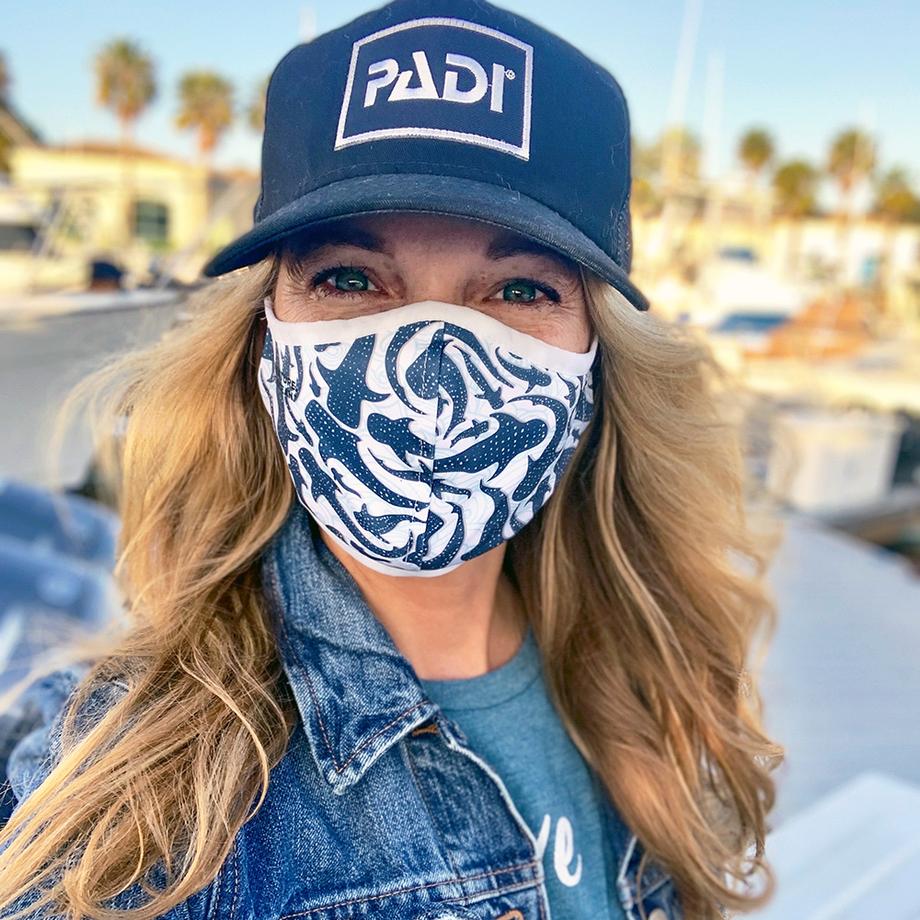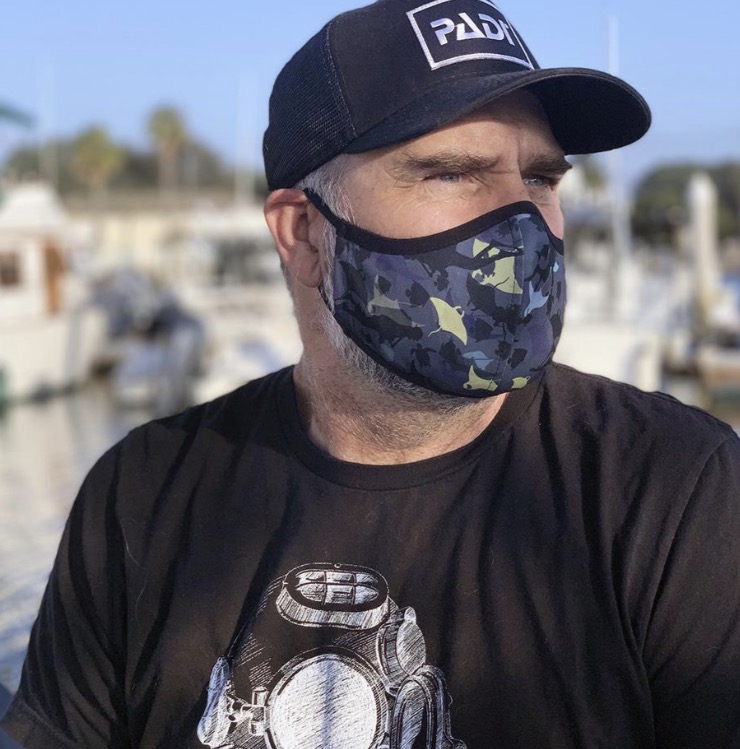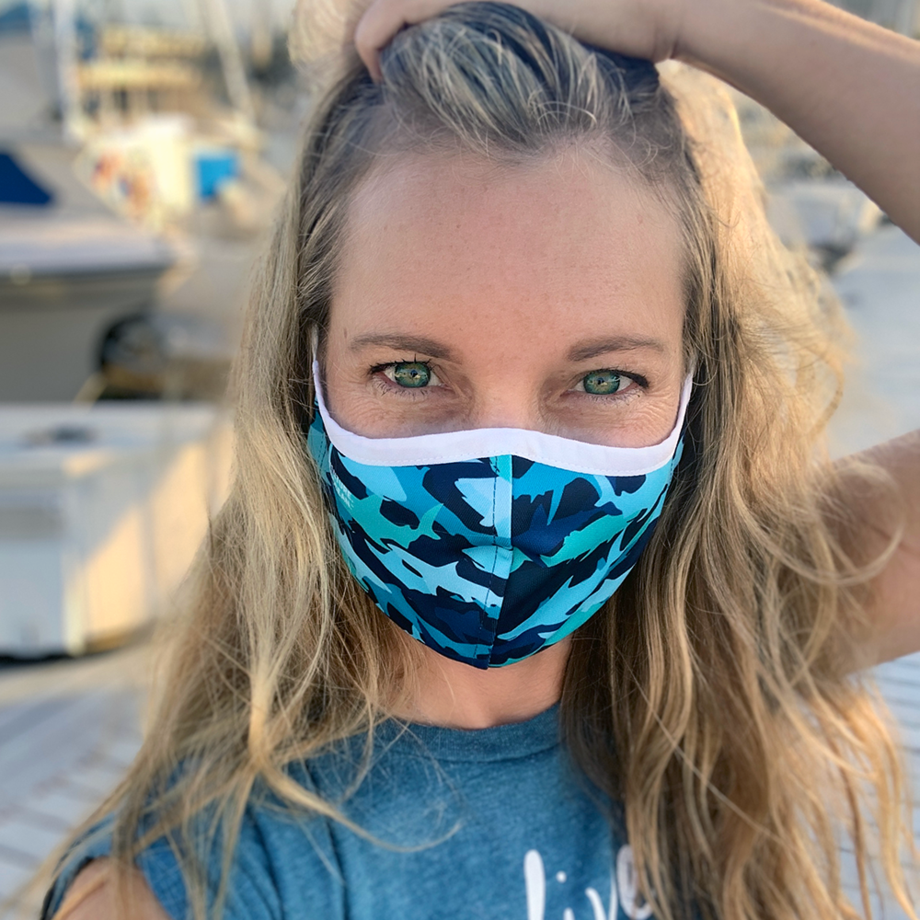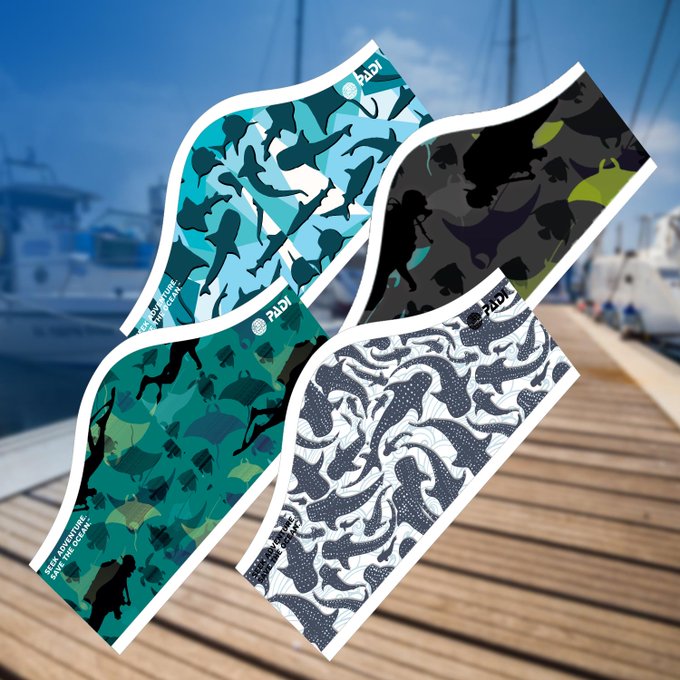
- Sustainable Planet -
- 5mins -
- 201 views
Scuba diving group makes face masks from recycled ocean plastic
With the sudden spike in plastic waste due to discarded coronavirus PPE, one scuba diving organisation is swimming against the plastic tide by making reusable, washable, and sustainable face masks from recycled ocean trash.
Protecting public health and the oceans: PADI Creates Face Masks from Recycled Ocean Plastic
In a win-win for sea animals and humans, PADI®, the world’s largest diver training organisation, has introduced an innovative range of ocean-friendly reusable face masks to help people care for the ocean when purchasing cloth face coverings. The group is turning plastic water bottles that once polluted oceans into face masks for people to protect themselves against the coronavirus.

PADI and its partners have removed and reused more than 575 kg of ocean plastic
PADI®, the world’s largest diver training organisation, has introduced an innovative range of ocean-friendly reusable face masks to help people care for the ocean when purchasing cloth face coverings. — reported Scubaverse.
The company has teamed up with their rash guard partner, Rash’R, to offer masks manufactured from plastic bottles recycled from the ocean. These masks contribute to the removal of plastic pollution from the ocean while helping to meet consumer demand for face masks during the pandemic.
Available through the PADI Gear collection of earth-friendly apparel and accessories, the new cloth face masks are dual layered, reusable and washable at high temperature. They feature a filter pocket for PM 2.5 carbon filters and each mask is packaged with five reusable carbon-activated filters which each last for around eight hours. Additional replacement filters can be purchased on their website.
Source: Scubaverse

PADI Gear is not making any profit from the sale of the masks – the price paid is the actual cost.
“PADI’s greatest priority has always been the safety of divers around the world. We care about the health of the ocean and dive community, so we wanted to be able to put our hands on our hearts and say that we’re not profiting from this difficult time,” said Lisa Nicklin, PADI Worldwide Vice President of Consumer Marketing.
“We wanted to give divers an opportunity to make a difference in an issue that, as ocean lovers, we care deeply about – plastic pollution.”
Using an alternative to medical grade masks means increasing the chances hospital staff, care and other essential workers will have access to the important safety equipment they need to carry out their work.
To date, based on the number of face masks purchased, PADI and its partners have removed and reused more than 575kg (1267lbs) of ocean plastic.
PADI Gear face masks are available in adult and child sizes and feature a variety of different patterns depicting marine life.
Source: Scubaverse

Amount Of Plastic Waste Surging Due to Coronavirus Pandemic
You have probably heard or read or even noticed that ever since the COVID-19 lockdown measures, the air and water all around the planet has become cleaner, and nature is recovering worldwide.
However, it’s important to remember that a lot of the personal protective equipment (PPE), the masks and gloves and other medical equipment, is plastic, and much of it is being thrown carelessly away. When PPE gets discarded in public areas, it ends up clogging drains and washing into waterways.
What’s more, some members of the plastics industry are taking advantage of the fear and uncertainty around the pandemic to push suspensions or rollbacks of hard-won environmental measures to reduce plastic pollution. They’re claiming “an abundance of caution” as the reason to reinstate widespread use of single-use plastic bags.
Ocean Conservancy scientists worry that if the temporary rollbacks to plastic bans become permanent, it could undermine efforts to reduce single-use plastics and increase ocean plastic pollution going forward. According to the non-profit, plastic bags are devastating for the ocean. They are consistently among the top 10 items collected by volunteers with Ocean Conservancy’s annual International Coastal Cleanup. They are also among the deadliest forms of marine debris and can persist for decades or longer in the environment.
While plastics such as gloves, masks and other medical equipment are important for protecting front line workers, this pandemic is a reminder of how much waste we produce and how we manage or mismanage it.
Source: Forbes


Important reminder
No mask guarantees protection from coronavirus, but the Centers for Disease Control and Prevention recommend people wear face masks in public settings to slow the spread of the disease. As with any personal protective equipment, it is important to follow local and national recommendations for use. Masks are not a replacement for other COVID-19 mitigation techniques like social distancing and washing hands.
Masks can be pre-ordered at PADI’s American and UK stores. Production and delivery may take up to three weeks.

